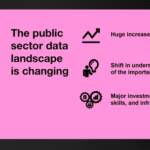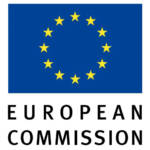Bold decisions are needed if Scotland is to build data as a national asset, according to Audit Scotland.

In a new blog, Gemma Diamond, audit director performance audit and best value, has called for radical action on how Scotland’s public sector uses data.
In Scotland, she said, reports for the Accounts Commission and Auditor General have repeatedly called out the existence of data gaps across a wide variety of policy areas.
“Often, we, and other public sector bodies, simply cannot get the specific evidence we need to decide whether money has been well spent,” said Diamond.
Diamond said there are things that can be done to address the problem.
“First, there is a need to weed out duplication,” she said. “And then to quickly focus limited resources on the preventative measures (and data) needed to tackle Scotland’s biggest problems, like the health of the nation. It’s inevitable that some things will have to stop to allow that prioritisation to happen. Let’s be clear, capturing robust reusable data will need investment and resources.
“Building data skills and a data culture across public bodies is also essential, and we know there is a will to change.”
Audit Scotland recently hosted a roundtable from across different parts of the public sector and from academia. However, Diamond noted that for some, “the exponential growth in data and attempts to manage it have created ‘a bit of a mess’ and we are not where we want to be.”
If you liked this content…
But she also said there was recognition that there are strengths in Scotland.
“As a small country, we can build on the collaborative efforts and rich learning we saw during the pandemic, by sharing best practice across sectors. Harnessing the strengths of our universities and private sector is important, as well as the talent of those working in data across public services,” she noted.
There are developments underway in Scotland.
- A new data strategy for health and social care is due to be published in early 2023
- Public bodies are participating in a data maturity pathway to understand where they are and what they need to do
- There is emerging work on data standards and developing data catalogues in local government.
- Innovative programmes such as the Data for Children Collaborative with UNICEF, is also mapping data based on ‘what matters’ for children and families.
“This all helps achieve a more co-ordinated approach. But it is decisive action that makes the difference,” said Diamond.
“Public sector leaders have a vital role in all of this, strategy and action on data must have buy-in from the top. We have set out some specific things for leaders to consider now.
“It’s also crucial that the public and users of data and statistics are involved, and that there is transparency in how data is being used. People need to trust and understand what is happening with data and how decisions are being made.”
In the meantime, she said, how the public sector is addressing data gaps and building data as a national asset will be a continued focus for Audit Scotland.
Check out the hybrid Think Data for Government event which looks at some key opportunities and challenges for public bodies and their suppliers, hearing from a diverse range of exciting speakers about current thinking and best practices.








